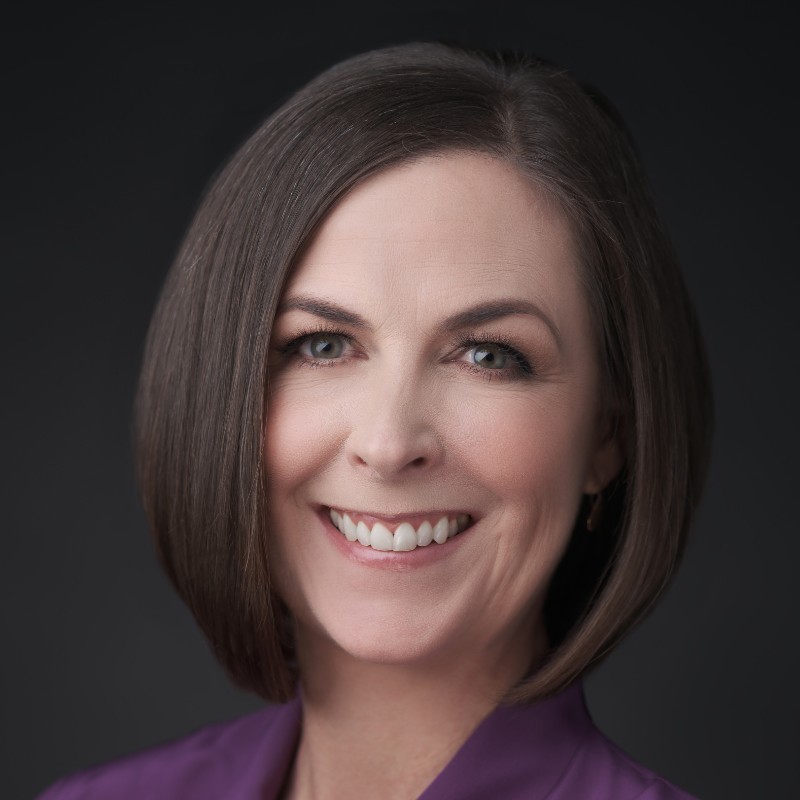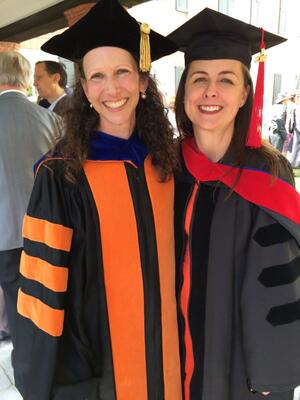By Kimberly Winston
In 2009, Allyson McKinney Timm was in a coffeehouse when she found herself writing furiously on one napkin after another.
A stranger walking past looked at the napkins and said, “I don’t know what you’re working on, but I hope you do it.”

“I was trying to discern what do I do next,” McKinney ’16 M.Div. said from her home in Maryland. “And I had long been thinking about this challenge of why are there so many Christians in the U.S. opposing human rights? And the idea for Justice Revival came to me quite vividly and I just started scribbling. I still have the napkins.”
Five years in, Justice Revival creates education materials and conducts trainings for churches and seminaries that link the Christian idea of justice with contemporary human rights issues; maintains a speakers program on the same subject; conducts advocacy work in the human rights arena; and forges relationships with like-minded organizations. It has a staff of three and an annual budget of $145,000.
Justice Revival is trying to address a problem that McKinney has long observed: Christians are generally committed to the idea of justice as understood through the life and teachings of Jesus but sometimes oppose contemporary human rights stands on religious grounds. Think of opposition to marriage equality, to a living wage, to trans rights, and to women’s bodily autonomy.
“There tends to be a cultural divide between the mainstream human rights community and the mainstream faith and justice community,” McKinney said. “And that is a deeper reason that we saw the need and the opportunity to bring Christian ethical commitments to the work of justice and human rights.”
McKinney has always been interested in both. A native of Jacksonville, Fla., she graduated from Florida State University and went on to Georgetown University for her law degree. Her first job was in San Francisco, where she worked on reform within the juvenile criminal justice system and fighting human trafficking.
After three years in San Francisco, she left to work for International Justice Mission (IJM), a faith-based non-profit focused on international human trafficking laws, setting up their field office in Uganda. Under her guidance, IJM Uganda worked to protect the property rights of widows and orphans. She also worked pro bono with the United Nations International Criminal Tribunal for Rwanda. Talking about that experience today—almost 20 years later—still brings tears to her eyes and a strain to her voice.
McKinney has a particularly charged memory of a Sunday worship service she attended at a Rwandan orphanage filled with children with machete scars and missing limbs.
“People had tried to take their lives and they were there worshipping God and singing about love and redemption,” she said. “That was the most inspiring thing I have ever seen, and I thought if they can do that, then surely I can do whatever is in my power to try to advance a more just world.”
After three years in Africa, McKinney decided to devote herself to educating people about human rights. She returned to the U.S. to take a Robert M. Cover-Allard K. Lowenstein Fellow in International Human Rights at Yale Law School. While there, she delved into the relationship between human rights and religion, later becoming a consultant and speaker on the topic.
 And that’s when she felt drawn to Yale Divinity School.
And that’s when she felt drawn to Yale Divinity School.
“I was trying to do some writing when I was a fellow at the Law School, and I realized that what I wanted to write about was really the Christian ethics related to human rights,” she said. “What I was moved to talk about was what should Christians be doing on these issues because of our faith? And I realized that I was trained in human rights, but I didn’t have formal training in Christian ethics.”
McKinney is a life-long Christian. She was raised in the Southern Baptist Convention but grew to question its ideas about women (the SBC does not ordain women as ministers). At Georgetown, McKinney attended Foundry United Methodist Church — the home church of Bill and Hillary Clinton — and soon became a member. In Uganda, she attended a Pentecostal church. Today, she is an ordained elder in the Presbyterian Church (U.S.A.) and a member of Bradley Hills Presbyterian Church in Bethesda, Maryland.
“They say at divinity school you sort of take your faith apart and then put it back together,” McKinney said. “So you’re really interrogating, scrutinizing many of your long-held beliefs.”
In addition to deepening her understanding of her own beliefs, YDS helped McKinney shore up her commitment to pairing faith and human rights.
“At YDS, I saw people who were intellectually impressive and accomplished but who had not had to trade off a belief in a loving God and a commitment to the church in order to have that sort of intellectual integrity,” she said. “What I got from Yale was a pathway toward greater spiritual and intellectual integrity that can live side by side.”
YDS Professor Jennifer Herdt was McKinney’s thesis advisor at YDS. What she remembers most about her is “her passion and her clarity of purpose.”
“Allyson had such a strong sense of calling,” recalled Herdt, Gilbert L. Stark Professor of Christian Ethics. “She really knew what she wanted to do with her life and that is so rare. Now she is realizing her vocation, and I am so impressed by what she has accomplished.”
There is, McKinney concedes, more work to be done. Christian women, she points out, were instrumental in defeating the Equal Rights Amendment in the late 1970s, and many religious women were outspoken in their opposition to Roe. v. Wade, which the Supreme Court reversed this year. She also notes that six of the nine sitting justices have been vocal about how Christianity is central to their lives.
“I think what we see with this Court is that religion plays a significant role not just in our politics but also in our legal systems and jurisprudence,” McKinney said. “It underscores how important it is to have a Christian voice explaining why human rights for all people, equal rights for all people, is a cause that represents the best of our Christian beliefs.”